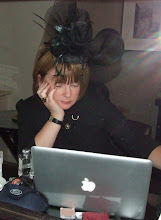She was lying flat on her back, completely still, arms
extended along her sides, palms face down. She opened her eyes. There was water
above her, and as far as she could see in any direction, though she did not
appear to be able to turn her head. The water was brownish-green, slightly
murky, as if someone had disturbed the sediment on the bottom. She could see no
fish, no aquatic plants, though she imagined that elsewhere below the surface,
their slime-coated green-yellow strands undulated gently in the current. There
was no current here, however. Everything was perfectly still. It must be a
pond, she thought, with quiet logic, not a river. She listened: there was no sound, no underwater
boom, no shoosh of water in her ears. Nothing.
Underneath her, it was also perfectly flat. She found that
she could wiggle her fingertips in the cold, silky silt. She knew it would be
the darkest turf brown, almost black. Roughly fourteen inches above her, she gauged, she
could see where the plane of the water-surface met the sky above. The light was
yellowish-white, flat, featureless. If she raised an arm, she thought, she could break the
surface.She found that she could not raise her arm.
She pushed against the bottom of the pond, but to no avail. The pressure of the water held her there, inexplicably, for it was
quite shallow. Only her fingers were free. Otherwise, she was prone, motionless.
Helpless. She pushed again, with more effort, and still, nothing happened.

She,
an air-breather, had no place here. Until that thought floated into her mind,
it had not occurred to her that she would need to breathe again, but now that
it had, the implications of her situation came flooding in. She began to think,
calmly, logically, but rapidly. She had good lung capacity, being both swimmer
and singer. When she was younger, she could swim the full breadth of the summer
river underwater.
She became conscious, finally, of the fact that she was
holding her breath, and with that, the knowledge that when she exhaled,
she would breathe in great lungfuls of the brownish-green water, and that she
would drown, struggling silently, with nothing showing on the surface. No-one
would hear her screams. She remembered reading somewhere that
drowning was easy after that first fatal inhalation: an intoxication, more like
a gentle falling asleep. But the thought of that first shock terrorised her,
galvanised her, and finally shook her out of her thoughtful contemplation. But
still she could not move.
A string of bubbles broke free from her lips and drifted upwards to the surface in rapid succession. She knew that her time was running out, that
the exhalation presaged the moment when she would suck in that last,
death-dealing breath. She thought of her children, and felt tears prick the
backs of her eyes. With one last, superhuman effort, she pushed….and broke the
surface, gasping wildly, sobbing with relief.
She was in her own bed, in her own room. She stared, unsure
of which reality was real. She rubbed the sheet between her fingers, feeling
its smoothness. Her husband lay on his own pillow, still asleep. She sat up,
looking about her, ticking off details one by one. It was her bed, her room. It was her. She listened to the minute morning sounds of the house,
and for a moment, thought to rush and check on her children, but then heard her
baby daughter murmur to herself in the next room, and relaxed again.
She turned to her husband, to shake him awake and tell him
of the terror that had befallen her, and then as much to reassure herself that he too still lived
and breathed, but he slept on, snoring slightly, as he always did when he lay on his
back. The red figures on the digital clock slowly changed, creeping towards the time
the whole household would waken. All was as it should be.
She sank back into her own pillows, suddenly fearful.

